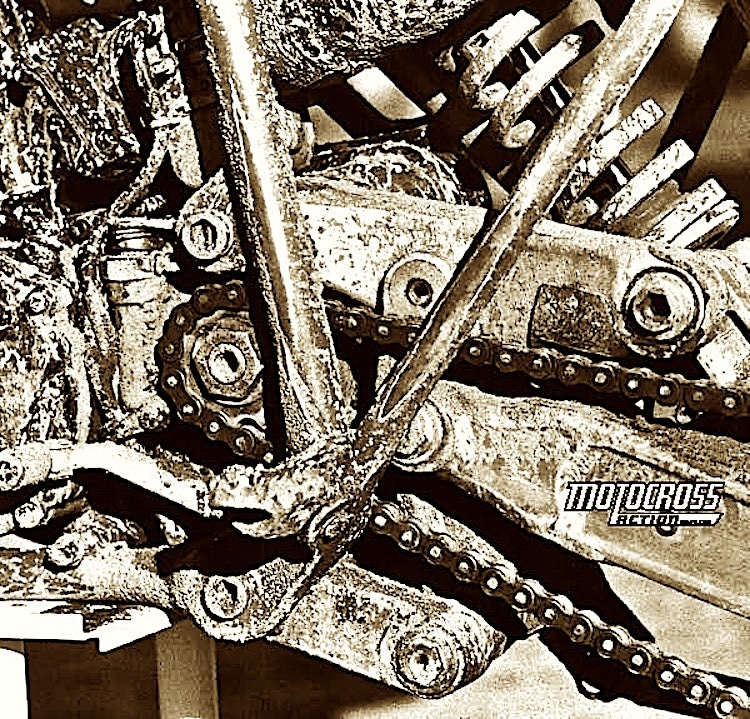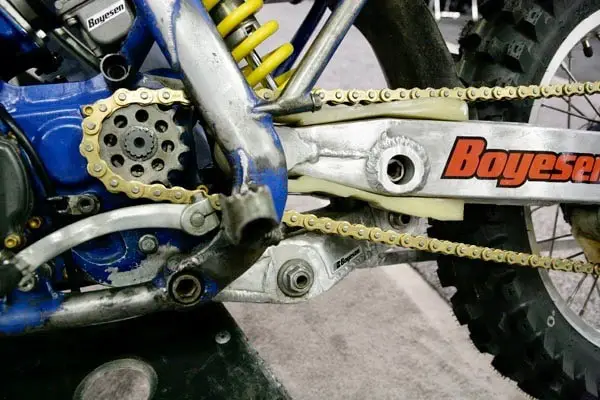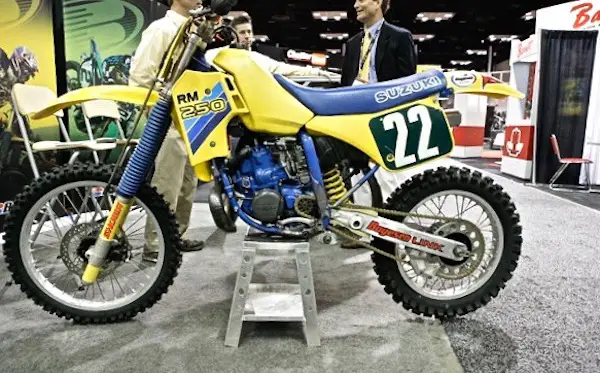FORGOTTEN MOTOCROSS TECH: EYVIND BOYESEN’S MOST FAMOUS INVENTION

Motocross history is filled with examples of creative ideas that were heralded as ground-breaking, but, because of the rapid rate of change in development, sank into the swamp of forgotten technology. Although some are best left abandoned, others were truly innovative—if not ultimately successful. MXA reveals motocross’ tech trivia. Do you remember this idea? The anti-chain-torque Boyesen Link.
Eyvind Boyesen spent years trying to convince the motorcycle industry of the evils of chain torque. And, amazingly, he worked on the same concepts that ATK pioneer Horst Leitner experimented with in his ATK suspension design. The two inventors tackled the same idea, but from completely different directions.

The multiple linkage arms and floating swingarm pivot of the Boyesen Link look confusing, but in motion, the Boyesen Link removed forces from the suspension caused by engine torque, lessened the polar moment of inertia, and improved rear-wheel contact by removing chain torque during acceleration and braking. Boyesen’s unusual parallelogram link received rave reviews from Bob Hannah, Roger DeCoster, JoJo Keller and MXA, but Eyvind could never get a manufacturer to license his complex design because it would be too expensive to produce. Eyvind raced a Boyesen Link Suzuki, winning the 2002 Over-60 World Vet Championship in 2002.

Bob Hannah’s Boyesen Link RM250.
Bob Hannah raced the Boysen Link RM250 at the 1986 Unadilla 250 Grand Prix. Suzuki wanted Bob to race their factory bike, but after extensive testing, Hannah chose to race the radical Boyesen Link Suzuki RM250. And he won on it.

The Boyesen Link bike that Bob Hannah won the Unadilla USGP on.

Bob said, “I had three works Suzuki bikes to choose from, and also the Boyesen Link bike. I decided to go with the Boyesen design. I rode it both days at the Unadilla GP. For the way that the track was at Unadilla, with the deep and wet loam, it wasn’t a big advantage. However, on the right track it would be a two or three seconds a lap advantage. The Boyesen link design would be excellent on a hard-pack track with square-edged bumps. I remember that the system needed some more work, but it was still a great idea. I don’t know that you could use the system in Supercross, because there are a lot of preloading situations needed. With that said, riding that bike in a World GP at, say, Italy or Spain, that bike would excel. It was fantastic in square-edged bumps.”






Comments are closed.